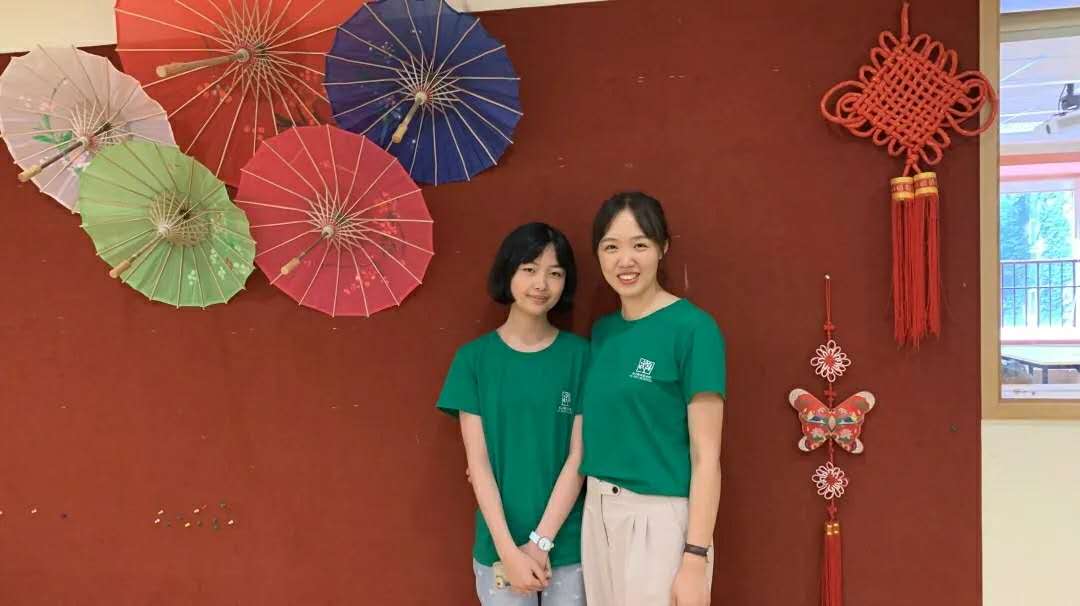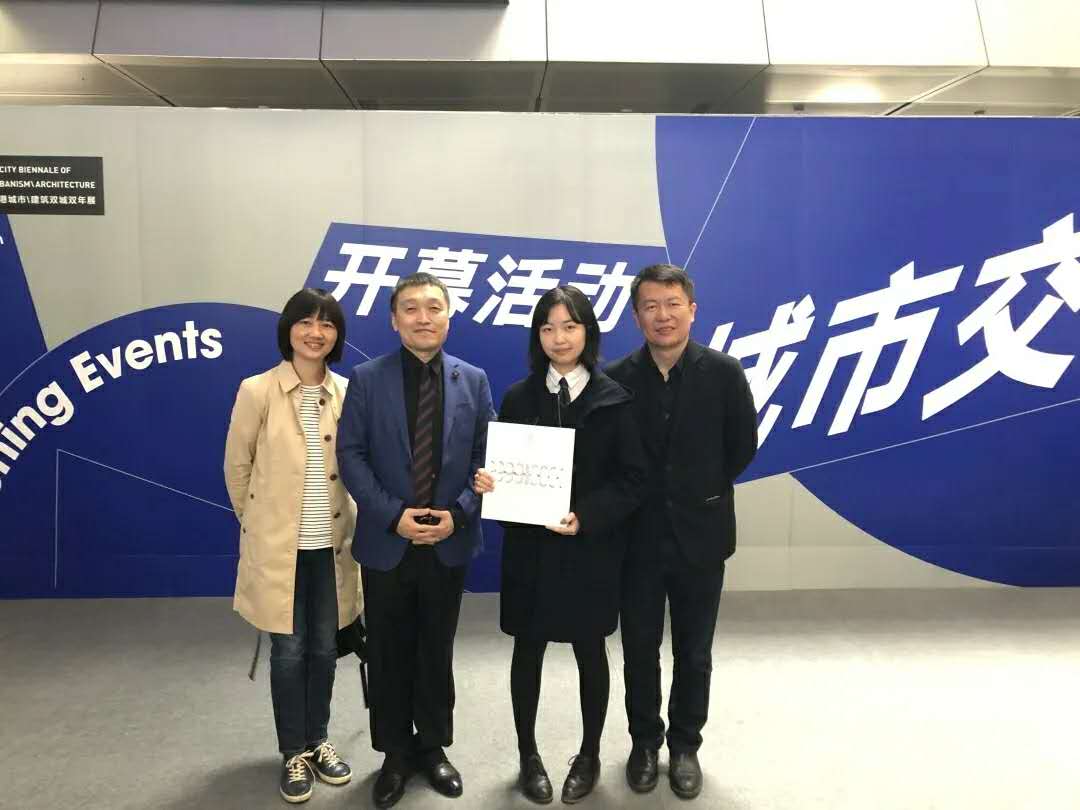International education is not one system or programme. Each has its advantages, but in general,
international education can be described as open, diversified, and with a focus on the students as its core.
The purpose of education is to guide students in their learning and exploration of the world.
——Philip Sohmen,
Co-founder of YK Pao School

Titi joined art summer camp in Year 9
Titi, who will be a Year 12 Pao School student in the 2020-21 academic year, loves literature and serves as president of the school's Light and Shadow Poetry Club. This year, working alongside several other literary enthusiasts, Titi helped produce Pao School's first Chinese literature publication, "Rebirth." This March, the United Nations published an article Titi wrote on gender equality entitled "Yes, girls do enjoy and can excel in STEM classes" on its official website.
Titi transferred to Pao School in Year 8. She managed this transition adeptly, quickly integrating into the Pao School family. Inspired by the open and inclusive ethos of her teachers and classmates, the once shy Titi gained the courage to express her thoughts freely. Her time at Pao School also gave birth to an interest in women's and gender studies, stemming from her love for literature. In IB English, the instructor Justin Sadoff introduced the students to Ibsen’s “A Doll’s House” and discussed concepts such as gender roles, gender stereotypes, and feminism. This experience sparked Titi's interest in gender studies. Further, Titi's geography teacher Peter Davison taught the students about many global topics, such as how different international organizations operate, which enabled Titi to think about gender research in a broader context.

Titi with the teacher when she joined Junior Counsellor programme
As for Titi's interest in STEM courses, she says that Pao School opened her eyes to how these subjects are relevant to our everyday lives. Before she came to Pao School, Titi thought STEM courses were boring, something for science geeks, for boys. But once she enrolled at Pao School, she found STEM courses were different from what she previously imagined. Not only were they interdisciplinary, but they also were fun.
Titi discovered that STEM courses are actually quite relevant for our everyday lives. For instance, Hansani Holmes, an Environmental Science teacher at Pao School, explained to students how to deal with food waste in a creative way. Ms. Holmes showed the students how to cultivate a vegetable garden in the library on the second floor of the school, bury the food waste in the soil, wait for it to decompose and then plant vegetables on top of it, such as carrots and leafy greens. Ms. Holmes tracked the vegetables' growth daily, sharing photos with the students so that they could observe the thickness of the soil and the speed of plant growth. In this manner, the students personally experimented with the process of turning food waste into edible nutrients after decomposition
Initially, Titi just submitted an article she drafted to UN Women. It was a bit of a shot in the dark. Yet, unexpectedly, the editor at the United Nations responded to her quickly after receiving the article and proposed she make some changes that would make it suitable for publication on the UN's website. Over the course of the next month, Titi and the editor at the UN exchanged many ideas via email, refined the article and completed the final draft at the end of March.

Titi published her Chinese science fiction novel and attended the book launch in Year 11
*The following is the original article written by Titi and published on the UN official website
Yes,
girls do enjoy and can excel in STEM classes
As a girl in China, I have experienced many gender stereotypes in my life. During my childhood, I was told by the people around me that girls are naturally better at memorizing information than doing calculations and other tasks that involve a lot of thinking. I was told that girls are likely to choose humanities classes and do well, while boys are likely to succeed in science classes.
For a long time, I deeply believed what my parents and teachers had told me. I felt unconfident about the science and math classes that I took at school. When I faced challenges, I even told myself that the reason I could not do the work was because I am a girl.
However, 10 years later, as an International Baccalaureate student who is enjoying environmental science and calculus classes, I realize that such ideas are totally wrong. After I transferred to a private high school and enrolled in high-quality STEM classes, I began to change my ideas and I started to gain confidence.
The STEM subjects (science, technology, engineering and math) offer me new perspectives of looking at the world. I really enjoy learning about human biology, ecology, and chemistry. One class that really changed my perspective is called Environmental Systems and Societies, which combines environmental science and biology with humanities and social sciences. I find that science is just as interesting as humanities and that we cannot analyze global issues without discussing it.
In fact, I am not planning on a STEM career. I intend to major in humanities and social sciences when I go to college, and I want to do research on gender inequality in China and how the current educational system worsens such inequality. I talk about STEM here as an example of the harmful nature of gender stereotypes. There are other examples, like boys are better at writing essays because they are more logical and boys should be the leader in club activities because they are better at making decisions. Gender stereotypes exist in many fields, not just in STEM.
I worry that these stereotypes are now so widespread that they have nearly become a norm in society that every woman should follow. And not everyone has the opportunity that I have had to realize the harmful nature of these stereotypes.
The Beijing Platform for Action says education is a powerful weapon for breaking these long-standing stereotypes.
I believe that there is an urgent need to integrate gender education into the school curriculum. It is important to show female students portraits of women who have demonstrated strength and leadership in different areas, from STEM to humanities and business. By writing stories or creating documentaries about those women, we can convince students that it is possible for them to achieve their dreams and reach their full potential. When faced with difficulties or social resistance, they will then have models to look up to.
Gender education not only empowers young women but also makes everyone in society aware of the huge potential and strength of women that has been underestimated and even ignored.
It might be hard to change the situation in a short time, but just as the old Chinese saying goes, “Small steps get us to faraway places.”